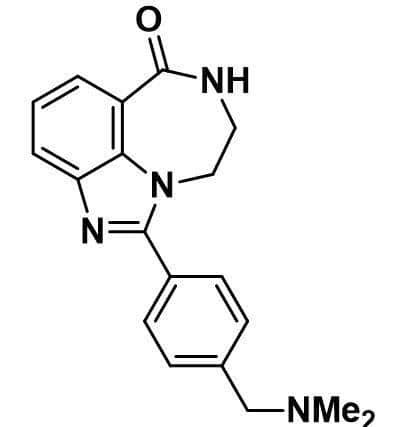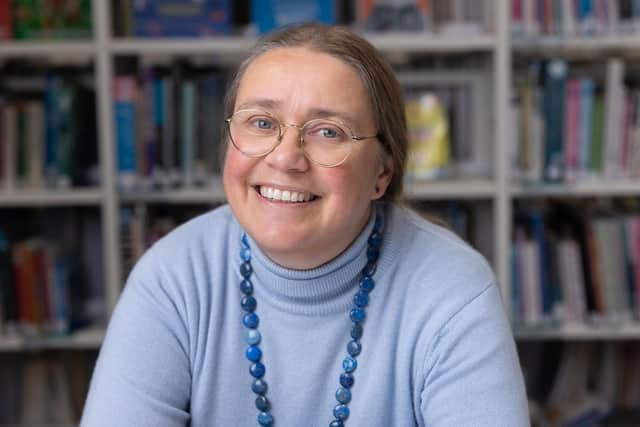Watch more of our videos on ShotsTV.com
and on Freeview 262 or Freely 565
Researchers in Newcastle who discovered a life-saving drug to treat cancer patients with a faulty gene, are marking a special anniversary and looking back at the impact their work has had on people around the world.
Professor Ruth Plummer, Director of the Cancer Research UK Newcastle Centre, and Professor Herbie Newell, Emeritus Professor of Cancer Therapeutics at Newcastle University, were among the team, funded by Cancer Research UK, that discovered the drug rucaparib.
The drug was a new class of cancer drug called PARP inhibitors, that were found to stop cancer cells from repairing themselves and causing them to die.
Rucaparib, which was approved by the FDA in 2016 and for use in the NHS in 2019, gave a lifeline to women with advanced ovarian cancer, whose tumours had a BRCA gene mutation.

It was 30 years ago this autumn, that Cancer Research UK scientists discovered the BRCA gene mutation, which helped unlock the knowledge that faults in these genes increase people’s risk of developing certain cancers including ovarian, breast, prostate and pancreatic cancers.
Around 70% of women with faulty BRCA1 or BRCA2 genes will develop breast cancer by the age of 80.*
Three decades later this incredible gene breakthrough is saving and improving the lives of people – now and in the future – by revolutionising how these cancers are prevented, diagnosed and treated.
It was how to treat this cancer, in people with the faulty genes, that Professor Plummer and Professor Newell were able to find through their work on PARP inhibitors.


Prof Plummer, who is an honorary consultant medical oncologist at the Freeman Hospital and is well-known for treating Sir Bobby Robson, said: “In Newcastle the team started to look at cells with a BRCA mutation, which we knew already have impaired repair systems. We found we could impair it further by targeting a protein within the cell called PARP. By creating a PARP inhibitor we could kill the cells. This resulted in the development of a new drug called rucaparib.”
With the help of the CRUK Centre for Drug Development, rucaparib went into phase 1 trials in 2003, with Professor Plummer writing the prescription for the first patient in the world to be treated by rucaparib, and the first ever cancer patient to be treated by a PARP inhibitor.
Prof Newell, who was the lead pharmacologist on the team, said: “This was a completely new concept so pharmaceutical companies were very skeptical and didn’t want to invest, but Cancer Research UK took the risk and backed the work.
“In 2005 the results were published that showed our theory was right and that cancer cells bearing BRCA mutations were extremely vulnerable to PARP inhibitors. This breakthrough changed the way people with the faulty gene would be treated forever.”


Prof Plummer, who was awarded an MBE for services to medicine, said: “It was always clear we had a drug that did something. The results from the first trial showed an excellent response from some patients. We knew how desperate people were for treatment options and to have been a part of this discovery was so special.”
Now rucaparib is being used to treat tens of thousands of people globally, as well as bringing millions of pounds in royalties to Cancer Research UK, which it invests straight back into new research.
Thanks to Cancer Research UK and collaborators like Newcastle University, so many preventative measures and targeted drugs like rucaparib are now available because of the landmark discovery of BRCA.
Prof Newell, who was awarded a CBE for services to medical research and drug development, said: “The benefit that has come from investing in BRCA and PARP inhibitors research over the last 30 years is remarkable. And most important of all, it has given families hope. Advances like this simply wouldn’t be possible without the generous support of Cancer Research UK fundraisers, and much of my 45-year career has been funded entirely by them, which I am spectacularly grateful for.”
With around 17,600 people diagnosed with cancer every year in the North East,** to continue to save lives, the charity needs people’s support today.
Cancer Research UK spokesperson for the North East, Lisa Millett, said: “Together, we are beating cancer. From understanding DNA repair and helping to discover the BRCA genes to developing treatments for faulty BRCA-driven cancers, we’re making huge leaps forward thanks to the generosity of our supporters.
“With their support it means we can plan ahead, committing to long-term research projects with potential to help save more lives. And because of monthly donations we can learn more, faster and accelerate progress.
“We hope people will consider giving regularly to the charity, if they can, because our work isn’t done yet. We want to bring about a world where everybody lives longer, better lives, free from the fear of cancer. No matter who they are or where they’re from.”
Donate monthly to Cancer Research UK at cruk.org/donate
This post was originally published on here







